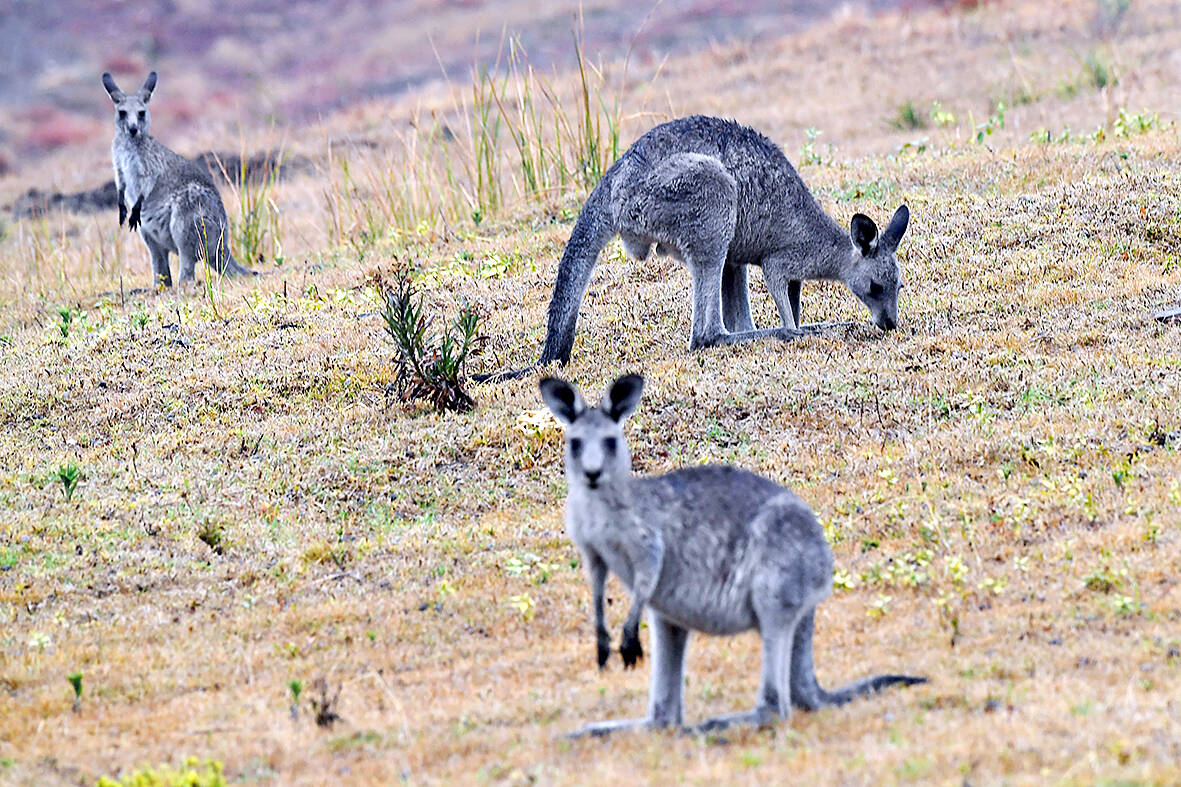Australia doesn’t exist. That’s at least according to Bing search results for some users on Wednesday when the Microsoft search engine cited long-running Internet conspiracy theories denying the existence of the country.
Several very real Australian users on Bluesky and Mastodon reported that when they searched for “does Australia exist” on Bing, it would come back with an emphatic “No” written in a text box before the link results.
“Bing is denying the existence of Australia,” the technology reporter Stilgherrian posted on Bluesky on Wednesday.

Photo: AFP
One user replied: “It’s buying into conspiracy theories.” Another asked: “Does that mean I don’t have to pay my bills?”
Some were able to replicate the result while others found Bing confirming that Australia does, in fact, exist.
One user pointed out that running the regular search and the AI search showed Bing Chat contradicting the search result.
The result appears in regular Bing searches, rather than the conversational searches Microsoft has integrated with its large language model artificial intelligence. Searches using Microsoft’s AI confirm the existence of Australia.
“Yes, Australia is a real country,” Bing co-pilot responded on Thursday.
“It is a sovereign nation that comprises the mainland of the Australian continent, the island of Tasmania, and numerous smaller islands.
“However, there are some conspiracy theories that claim Australia doesn’t exist. These theories suggest that the country was invented by the British government as an excuse to execute tens of thousands of prisoners … These theories are not true and have been debunked by scientific evidence.”
A spokesperson for Microsoft said the issue had been rectified. “Thank you for bringing this to our attention,” the spokesperson said. “We’ve investigated this query and have rolled out a fix to address it.”
Guardian Australia was unable to replicate the result in Bing’s regular search on Thursday. One of the top Bing search results points to a Guardian article from 2018 mentioning that the part-joke conspiracy had been circulating on social media after originating on Reddit in 2017.
A since-deleted post shared 20,000 times on Facebook at the time claimed Australia is “one of the biggest hoaxes ever created.”
But the conspiracy reportedly dates back even further back to 2006, when a user on the Flat Earth Society forum reportedly claimed everything about Australia was made up and everyone who claimed to be Australian were “secret government agents.”

On April 26, The Lancet published a letter from two doctors at Taichung-based China Medical University Hospital (CMUH) warning that “Taiwan’s Health Care System is on the Brink of Collapse.” The authors said that “Years of policy inaction and mismanagement of resources have led to the National Health Insurance system operating under unsustainable conditions.” The pushback was immediate. Errors in the paper were quickly identified and publicized, to discredit the authors (the hospital apologized). CNA reported that CMUH said the letter described Taiwan in 2021 as having 62 nurses per 10,000 people, when the correct number was 78 nurses per 10,000

As we live longer, our risk of cognitive impairment is increasing. How can we delay the onset of symptoms? Do we have to give up every indulgence or can small changes make a difference? We asked neurologists for tips on how to keep our brains healthy for life. TAKE CARE OF YOUR HEALTH “All of the sensible things that apply to bodily health apply to brain health,” says Suzanne O’Sullivan, a consultant in neurology at the National Hospital for Neurology and Neurosurgery in London, and the author of The Age of Diagnosis. “When you’re 20, you can get away with absolute

May 5 to May 11 What started out as friction between Taiwanese students at Taichung First High School and a Japanese head cook escalated dramatically over the first two weeks of May 1927. It began on April 30 when the cook’s wife knew that lotus starch used in that night’s dinner had rat feces in it, but failed to inform staff until the meal was already prepared. The students believed that her silence was intentional, and filed a complaint. The school’s Japanese administrators sided with the cook’s family, dismissing the students as troublemakers and clamping down on their freedoms — with

As Donald Trump’s executive order in March led to the shuttering of Voice of America (VOA) — the global broadcaster whose roots date back to the fight against Nazi propaganda — he quickly attracted support from figures not used to aligning themselves with any US administration. Trump had ordered the US Agency for Global Media, the federal agency that funds VOA and other groups promoting independent journalism overseas, to be “eliminated to the maximum extent consistent with applicable law.” The decision suddenly halted programming in 49 languages to more than 425 million people. In Moscow, Margarita Simonyan, the hardline editor-in-chief of the